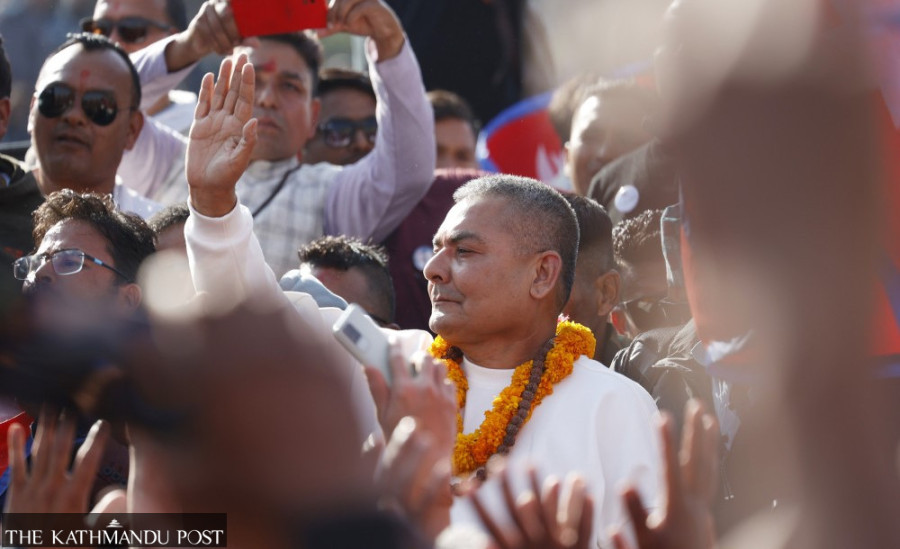Editorial
Trigger warning
Lethal weapons in Durga Prasai’s possession should make the state rethink its firearms licensing policy.
Seventeen years ago, Lokendra Bista, then a novice lawmaker of the then CPN-Maoist, shocked the nation when he said in Parliament: “I am still carrying my pistol with the permission of the United Nations.” Some days earlier, security personnel at the Singha Durbar main gate had confiscated pistols from personal guards of Bista and of another Maoist lawmaker and party chief whip Dev Gurung. On the party’s behalf, Gurung had then apologised in Parliament for Bista’s incendiary speech. This episode raised considerable concern, with the people asking if the Maoists had clung to their insurgent selves even when they had been ushered to national politics with a position almost equal to that of the then second-largest party in Parliament. The then Home Minister Krishna Sitaula had downplayed the incident, remarking that Bista’s claim “must not be true”. Perhaps Sitaula wanted to give the erstwhile gun-toting guerillas some time to adjust to mainstream politics.
Earlier this week, in an ominous reminder of the 2007 incident, controversial businessman Durga Prasai’s security guards were arrested for carrying a semi-automatic gun and 100 rounds of bullet on the Supreme Court premises. This was when Prasai had presented himself for a hearing before the top court. Lawyer Om Prakash Aryal was on point when he said Prasai’s presence in the court, while his assistants outside carried weapons, created an atmosphere of fear. The incident comes after several statements by Prasai over the months that there was a need to shoot dozens of people, including the rights crusader Dr Govinda KC. Initial investigation shows that a different bodyguard of Prasai to the one specified in the permit was carrying the gun, which is illegal. And as Aryal hinted, carrying the weapon inside Supreme Court premises was aimed at intimidating the judiciary. What is important here is how Prasai and his henchmen are considered fit to carry a weapon in the first place.
The incident has prompted the Ministry of Home Affairs to order its constituent bodies to intimate it about the details of weapons kept by individuals nationwide. This is the first necessary step, but the government should not stop at that. Currently, the provision allowing individuals to keep weapons is based on a six-decade-old Fire Arms and Ammunition Act 1962. Although the Act has been revised occasionally, experts say its fundamental premises remain unchanged. As per the Act and its regulations, an individual who can convince the Chief District Officer of the risk to their life can get a licence to keep weapons for Rs6,000 and renew the licence for Rs4,000. Time has come to change such lax provisions.
Government officials apparently have little idea how and why the licences are being distributed to individuals haphazardly and without specifying limits to their use and display. The Prasai case has highlighted the inconsistencies in the distribution of the licences, exposing how those with access to top leaders have been keeping weapons even when there is no apparent threat to their security. The fact that an individual known for creating security challenges for the state through disruptive protests in the recent past, apart from giving provocative speeches asking for public punishment of those he doesn’t like, has been found in possession of dangerous firearms is antagonistic to the idea of peace and security. The government must immediately conduct a thorough assessment of the licences it has distributed and recall the weapons in cases where they are not absolutely necessary.




 20.9°C Kathmandu
20.9°C Kathmandu














